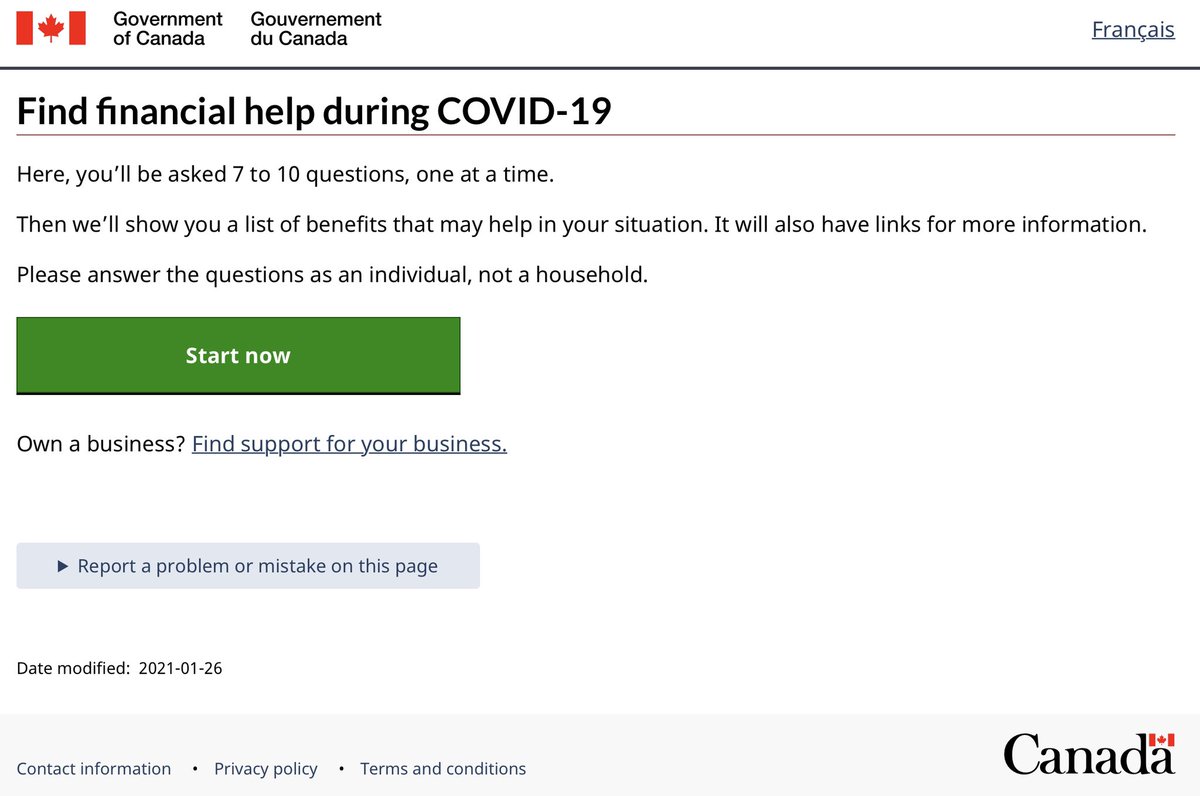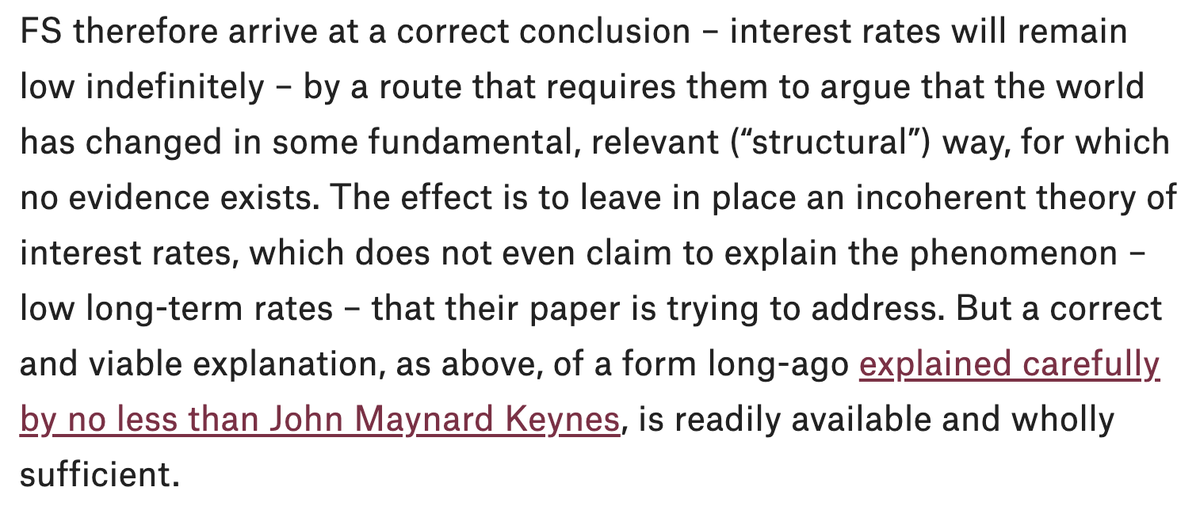
Consider this passage from CBO's August 2010 budget report:
"The amount of federal debt held by the public has
skyrocketed in the past two years: from 40 percent of GDP at the end of 2008 to nearly 62 percent at the end
of this year, CBO estimates."
cbo.gov/sites/default/…
1/8
"The amount of federal debt held by the public has
skyrocketed in the past two years: from 40 percent of GDP at the end of 2008 to nearly 62 percent at the end
of this year, CBO estimates."
cbo.gov/sites/default/…
1/8
CBO continues.... Next sentence: "Interest rates, however, have fallen to historically low levels, so despite the higher *levels* of debt, *interest costs* have not yet increased significantly." 2/8
Now consider this comment from Yellen earlier today. She seems to be invoking the sort of thinking found in this recent paper by Furman & Summers. 3/8 brookings.edu/wp-content/upl… 

There were serious and costly policy errors made in the wake of the financial crisis, when the Obama admin decided to pursue deficit reduction in the presence of substantial unused capacity. Here they were calling for $4 trillion in deficit reduction. 4/8 c-span.org/video/?309794-…!
What bothers me? First, if (as Summers/Furman now say) "debt-to-GDP ratios are a misleading metric of fiscal sustainability" when there is "unused capacity and very low interest rates," then why wasn't that the argument back then? It was right there in the CBO report! 5/8
Ah, but here's the rub. Like Summers today, CBO went on to warn about rising rates. And that's what makes this all so frustrating. The mainstream has "evolved" on deficits to the new view that fiscal space (and sustainability) are about the cost of servicing the debt. 6/8 

But the "new view" is still an austerity framework. It says, basically, "you're safe until you aren't." Exactly the sort of thing that will come back to undermine policy this time around. The cost of servicing the debt is NOT the right way to think about fiscal space. 7/8
If you're covering these debates, please read Galbraith ineteconomics.org/perspectives/b… and @stf18 researchgate.net/publication/30… and you'll see that Scott had the whole Blanchard argument laid out years prior but with the added understanding that interest on gov bonds is a policy variable. 8/8
• • •
Missing some Tweet in this thread? You can try to
force a refresh











